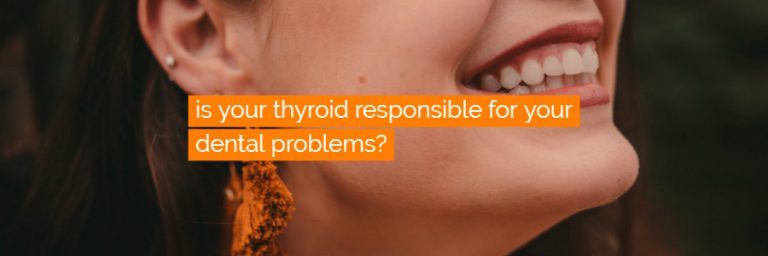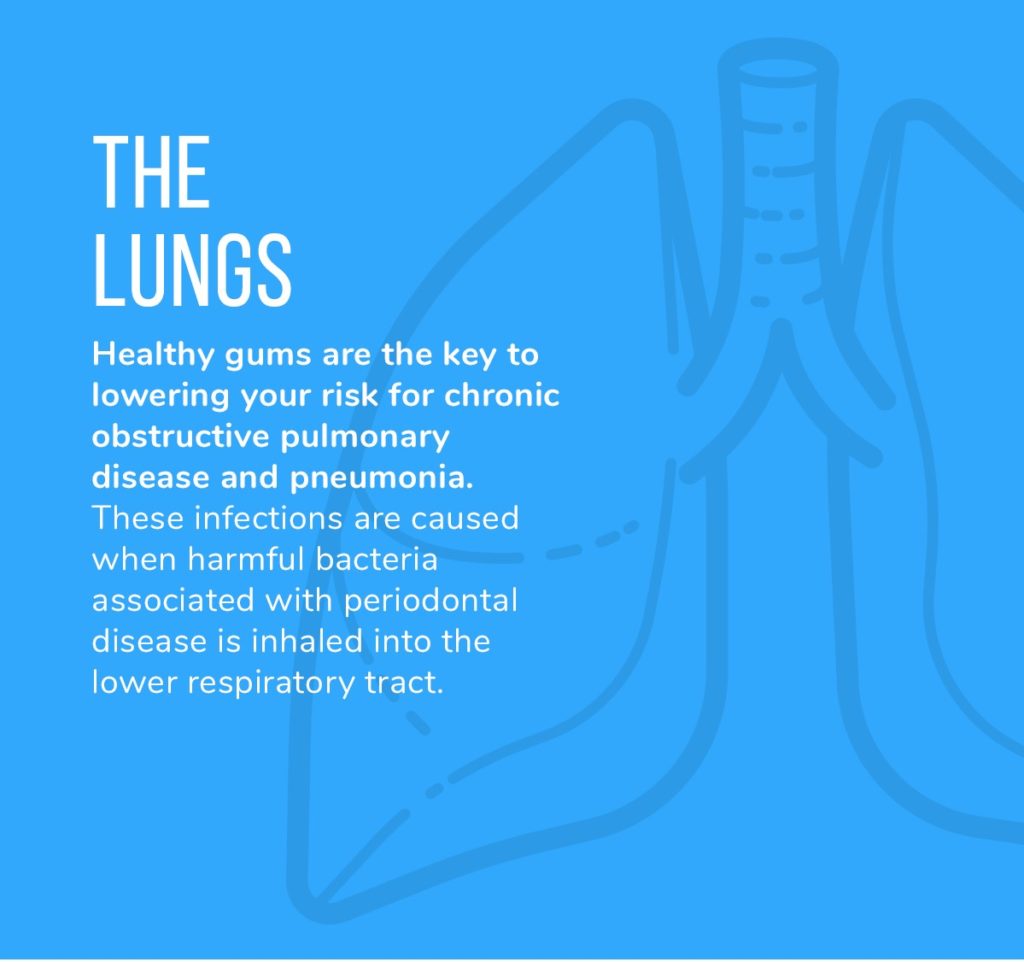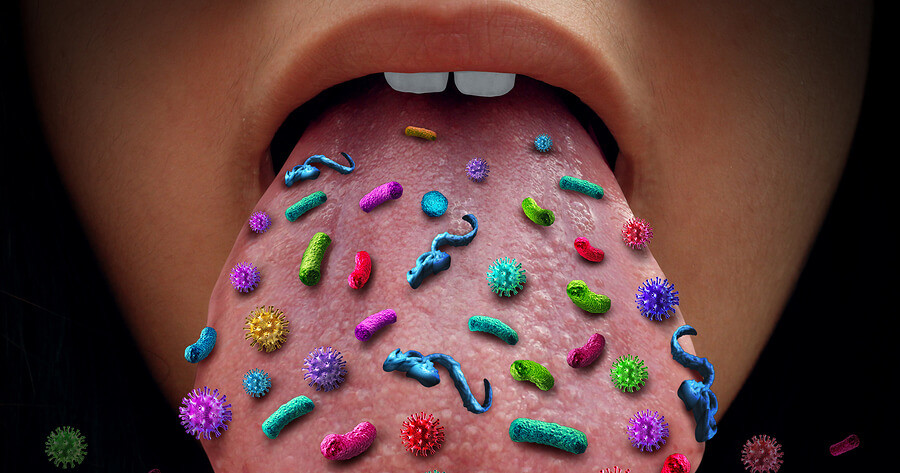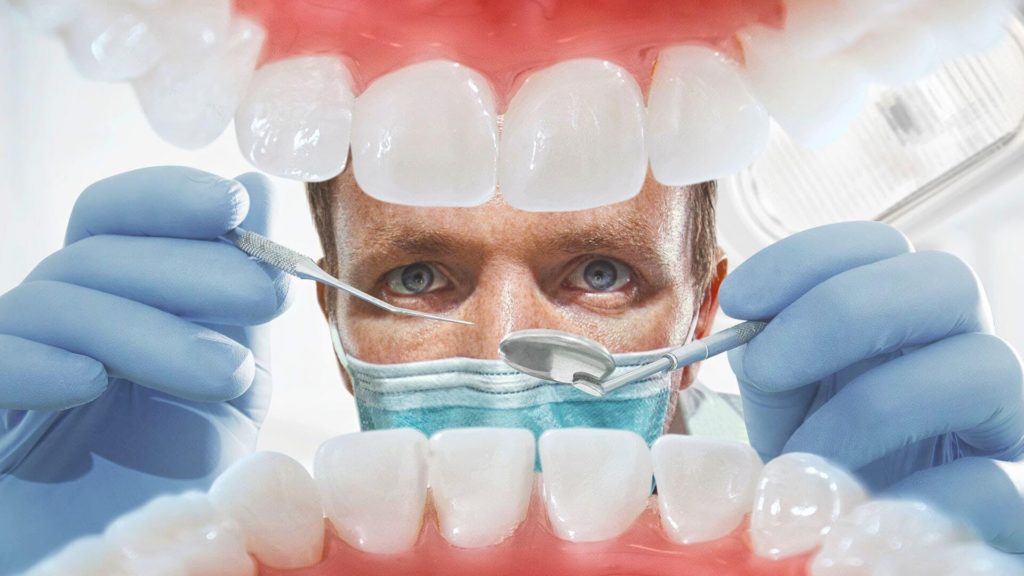
Link between thyroid disease, Hashimotos, and Gum Disease
You may have heard the common phrase, “all disease starts in the gut.” A phrase that was coined over 2,000 years ago, which has been attributed to Hippocrates, the Greek founder of medicine. While that phrase is true, it’s also true that the mouth is often the window to the entire body. Meaning that if something isn’t right in your system, it’ll show signs in your mouth.
This means that your mouth is connected to more than just your teeth or even your gut – it’s connected to your thyroid, liver, kidneys, and all other parts of your body. In the past few years, the scientific community has determined the link between thyroid disease, and Hashimoto’s, with gum disease. According to Dr. Izabella Wentz, a doctor of pharmacy, “the same bacteria that contribute to gum disease or periodontitis produce an inflammatory response associated with Hashimoto’s thyroiditis—the underlying cause of hypothyroidism.”
Learn more from Dr. Wentz: Periodontitis, a Trigger for Hashimoto’s?
Gum Disease/Periodontitis
Gum disease, also known as periodontitis, happens when your gums become inflamed from bacteria in the mouth. This can lead to:
- Loose teeth
- Receding gum line
- Bone loss in the jaw
- Tooth loss
Gum disease is common and effects up to half of Americans over the age of 30, according to the Centers for Disease Control. If you’re seeing blood when brushing or flossing your teeth, it could be the first sign of gum disease, so it’s important to stay on top of your oral health routine and to see your dentist regularly for checkups and cleanings. So, what’s the link between Hashimoto’s and gum disease? The proof is in the bacteria.
Case Study:
Please read the below clinical case report of Hashimoto’s thyroiditis and its impact on the treatment of chronic periodontitis (link below):
Linking Bacteria to Thyroid Disease and Hashimoto’s
According to Dr. Wentz, the link is in molecular mimicry. While that may sound confusing, let’s break down the basics of it all:
- The bacteria in our mouth, which is causing gum disease, is also causing inflammation in the rest of our body.
- People with Hashimoto’s often have gum disease. When they experience flare-ups in their disease, they also experience flare-ups in their gums – showing a connection.
“Molecular mimicry is an autoimmune theory suggesting that bacterial cells or other proteins (such as food proteins) have a similar appearance to the cells that make up parts of the human body, or “self-antigens.”, says Dr. Mentz.
So, when bacteria are around, our body is not only attacking the bacteria, but also parts of our body that have similar proteins. Meaning our body could be attacking the bacteria in our gums, and also the proteins in our thyroid.
The relationship from the National Library of Medicine: Relationship between hypothyroidism and periodontitis: A scoping review
Gum Disease is linked to other diseases. Learn more:
- Dental Health Awareness: Gum Disease and Heart Disease
- Whole Body Health: Oral Care Impacts Heart Disease and Diabetes
- Oral Bacteria: Are Healthy Teeth Just About a Pretty Smile?
- Gum Disease: Can a Simple Cavity Turn into Gum Disease?
- Why is it Important to Schedule Your Dental Exam Twice a Year?
Protect Your Thyroid and Your Mouth
The evidence for good dental hygiene is stronger than ever. Regular brushing and flossing are essential for not only good oral health, but good overall health. The thyroid can have huge impacts on all aspects of your body, and your mouth could very well be impacted through gum disease. If you’re concerned about signs of thyroid or Hashimoto’s, speak with your doctor about testing your thyroid.
GPS Dental Offers Help
Now that you understand a little more about the link between Hashimoto’s and Gum Disease, GPS Dental can help. At GPS Dental, we offer treatment for our patients with Gum Disease with thorough dental cleanings that you may not find through other dental offices. Call 210-633-3477 to schedule your dental exam and cleaning, remember it can lead to early detection and diagnosis of disease. Make sure to mention any changes in your health, new medications, and especially if you are seeing blood after brushing or flossing your teeth.
Dr. Skrobanek and his team at GPS Dental are accepting new patients and look forward to meeting you and your family.
Dr. Gary P. Skrobanek is a dental implant dentist and his experienced, friendly team at GPS Dental offer affordable family dentistry and gentle dental care in the San Antonio, TX area. Our Brooks City Base dentist office is conveniently located and offers early morning appointment times Monday through Friday to meet your needs. At GPS Dental, we provide most dental services, from family and general dentistry to dental implants, sleep apnea, TMJ / TMD Treatment, cosmetic dentistry and much more. We accept most dental insurance plans and offer affordable financial solutions for any budget. Call us at (210) 633-3477 to make an appointment.










